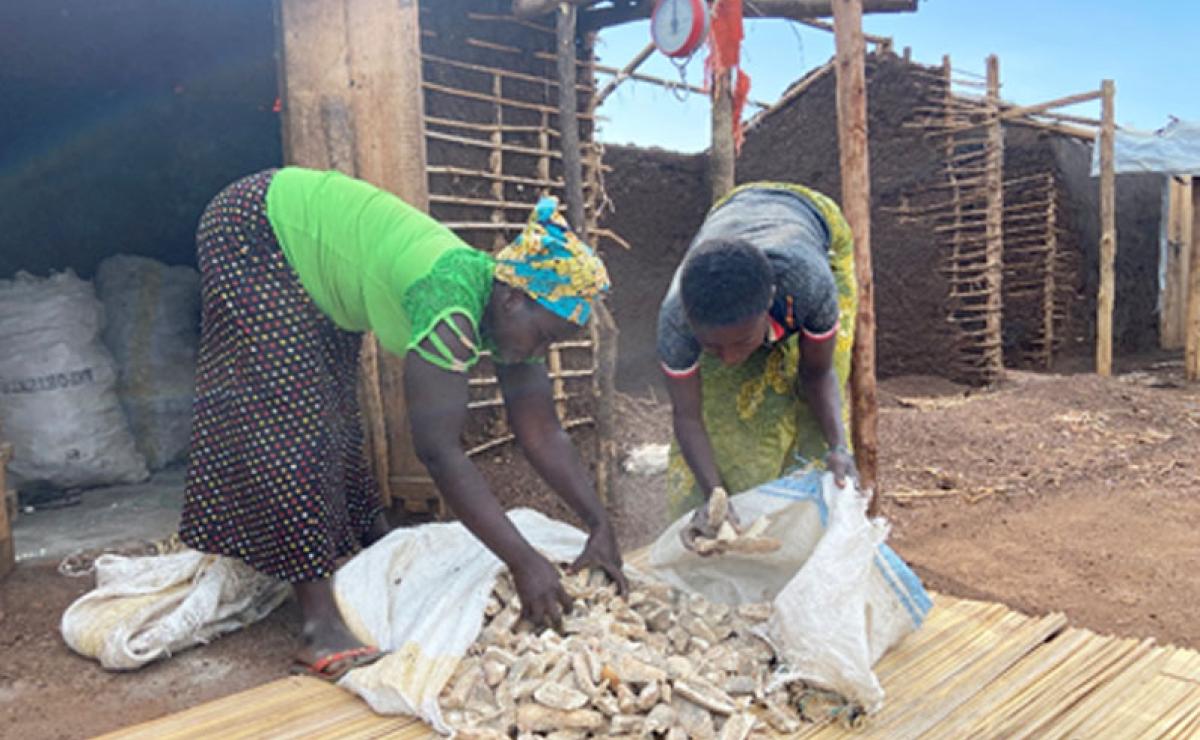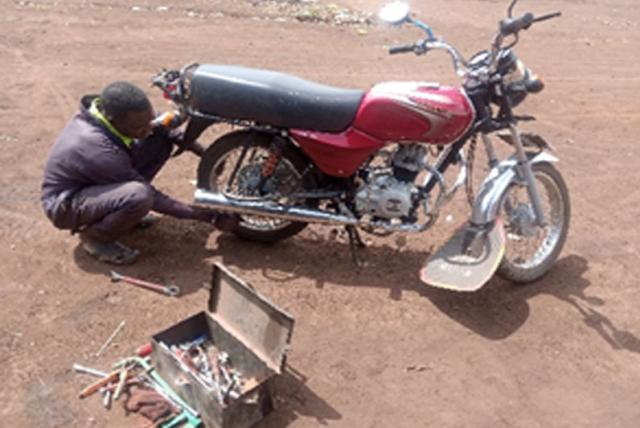Reskilling and cash grants aid self-reliance among youth refugees in Kyangwali settlement

With the majority hardly equipped with any skills after the tension in their countries, refugees are prone to poverty even in host countries like Uganda, with favourable refugee protection policies which allow them to engage in entrepreneurship.
The lack of capital and skills for small income-generating activities like tailoring, hairdressing and catering are significant barriers to refugees. In response, LWF, with funding from the State Department's Bureau for Population, Refugees, and Migration (PRM), supports Congolese and South Sudanese with entrepreneurship, life skills, and financial literacy critical to self-employment.
Functional literacy, computer skills, and the VSLA methodology are among other skills LWF equips the refugees in Palorinya, Palabek, and Adjumani settlements in Northern Uganda and Kyangwali refugee settlement in South Western Uganda to build their self-reliance.
The support has empowered households that formerly lived in abject poverty like that of Munguriek Kayocwinyi, a 24-year-Old Congolese refugee mother of two biological children and two other foster ones.
Located in Western Uganda near the border with the Democratic Republic of Congo, Kyangwali settlement is home to more than 83,000 Congolese refugees. Kayocwinyi earns an average monthly profit of UGX 100,000($28) from the sale of dry cassava, enough to cater for her basic household needs like scholastic materials for her children and food to supplement the rations.
After receiving a cash grant and business management training under the Reconnecting Lives, Vision, and Empowerment (ReLiVE) project, she achieved this.
"I received shs1,000,000 (about $281) as a start capital in 2021 after the training," Kayocwinyi confirms.
The initiative is part of the project intervention to empower foster parents and ensure their business continuity and strengthen their saving culture through the Village Savings and Loan Association (VSLA)
On their arrival in Uganda in 2019, Kayocwinyi and the children lacked basic needs like soap and clothes whenever she had no causal labour like digging and washing clothes.
"Even if I got money, I could not manage a business," she realises the knowledge gap that kept her household in poverty. Her story has changed like that of other youth beneficiaries.

Under the same arrangement, a couple of youth refugees who are primary school dropouts and therefore ill skilled like Kayocwinyi have gained a fortune through vocational training under local artisans and stopped depending on the dwindling food aid.
Dennis Ochan is among the lucky youths who also received a cash grant of the same amount after the training to boost his enterprise, eight years after he arrived from the Democratic Republic of Congo (DRC)
After six months of training from November 2020 to May 2021 in motorcycle repair and maintenance, Ochan confidently states he is already reaping. He boasts of a steady daily income.
"Daily, I earn at least Shs15,000 (about $4) from repairs and sale of spare parts," he states with joy. "I also have a youth I train from the host community at a monthly fee of Shs100,000(about $28)."
Ochan learnt that saving is critical to better planning and managing one's financial life as part of the training. "I save Shs12,000(about $3) in my VSLA group every week ", he boasts.
Before the intervention, Ochan lived a hopeless life after dropping out of school in primary for lack of educational materials. After the father's death during the war back home in the Democratic Republic of Congo, his single mother relied on subsistence farming and later on food rations when they fled to Uganda.
To date, the vocational skilling has turned around not only Ochan's life but also the entire household and his relatives, whom he says, "I can now provide them with basic needs and medication."
Like Ochan and Kayocwinyi, many other beneficiaries attest that the interventions have helped them out of poverty which drives harmful coping mechanisms, such as survival sex, selling rations, child labour, dropping out of school, and early marriage.
This shows the need to continue supporting refugee families to build self-reliance and counter the increasing food rations cut.
-END-

